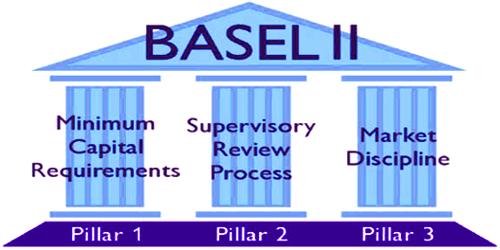Basel II is the second of the Basel Accords which are recommendations on banking laws and regulations issued by the Basel Committee on Banking Supervision. It is an international business standard that requires financial institutions to sustain enough cash reserves to cover risks incurred by operations. The name for the accords is derived from Basel, Switzerland, where the committee that maintains the accords meets.
Basel II, initially published in June 2004, was intended to amend international standards that controlled how many capital banks need to hold to guard against the financial and operational risks banks face. These rules seek to ensure that the greater the risk to which a bank is exposed, the greater the amount of capital the bank needs to hold to safeguard its solvency and economic stability. Basel II attempted to accomplish this by establishing risk and capital management requirements to ensure that a bank has adequate capital for the risk the bank exposes itself to through its lending, investment, and trading activities. One focus was to maintain sufficient consistency of regulations so to limit competitive inequality amongst internationally active banks.
The three essential requirements of Basel II are:
- Mandating that capital allocations by institutional managers are more risk sensitive.
- Separating credit risks from operational risks and quantifying both.
- Reducing the scope or possibility of regulatory arbitrage by attempting to align the real or economic risk precisely with a regulatory appraisal.















